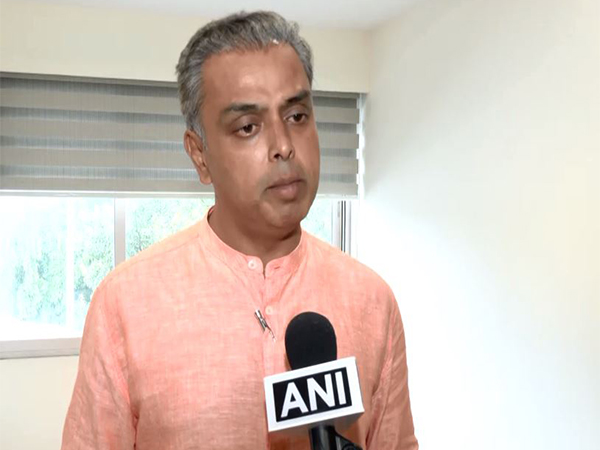Mumbai (Maharashtra) [India], July 14 (ANI): Shiv Sena MP Milind Deora and chair of Parliamentary Committee on Subordinate Legislation on Monday said India should regulate unhealthy foods sold by multinational companies, along with Indian snacks such as jalebis and samosas, to deal with rising obesity problems.
The Union health ministry has recently proposed displaying sugar and oil boards as an initiative to promote healthier dietary habits in various settings.
According to the ministry’s proposal, these boards will serve as visual behavioural nudges in schools, offices, public institutions etc. displaying key information about hidden fats and sugars in everyday foods.
“Placing greater stringent regulations on unhealthy foods like jalebi, like samosa, this is a welcome step,” Deora told ANI.
“As chairman of the Parliament Subordinate Legislation Committee, which has members of parliament from all parties, we are at present examining this very issue. Along with the agency called the FSSAI which is the food regulator in our country,” the Rajya Sabha MP said.
“And we are examining how the food regulator can be more stringent to ensure that the average consumer in India makes more informed choice when buying product for the family members.”
“One of our recommendations in the last few meetings that we had with members of the Ministry of Health has been that while you want to regulate and you want to curb the consumption, or you want to make consumers aware of the unhealthy ingredients associated with foods like samosa and jalebi. We should also do that with western foods that are coming in market. We should also do that with burgers with pizzas, with donuts with other products that are being imported from the West,” he said.
“Otherwise there will not be a level playing field, the small shopkeeper on the streets whose jalebi and samosa sales will be adversely affected. But large multinational chain like McDonalds…There should be a level playing field where consumers are aware of these harmful side effects,” the Rajya Sabha MP said
“…The state and central governments have imposed hefty taxes on cigarettes, yet people smoke. The government can only bring regulations to disincentivise people… The processed packaged juices are not fruit juices. They are sugar drinks. There is no difference between that drink and Coca-Cola. Some studies say that Coca-Cola is healthier than those drinks… I am confident that under the leadership of PM Modi and our dynamic Health Minister JP Nadda, soon Indian and Western junk food will be controlled in India’s food sector…” Deora said.
Departments/Offices/autonomous bodies and other public institutions/organizations under the Ministry have been asked to install oil and sugar board displays (Digital/ Static posters) in common areas (cafeterias, lobbies, meeting rooms and other public spaces) to raise awareness on harmful consumption.
They are also asked to print health messages on all official stationery (letterheads, envelopes, notepads, folders, etc.) and publications to reinforce daily reminders on fighting obesity.
Besides, they were asked to promote healthy meals and physical activity in offices through nutritious, healthier food options (more fruits, vegetables, and low-fat options, and by limiting availability of sugary drinks and high-fat snacks) and active workplace initiatives (such as encouraging use of stairs, organizing short exercise breaks, and facilitating walking routes).
India is witnessing a sharp rise in obesity among both adults and children. As per NFHS-5 (2019-21) data, over one in five adults in urban areas are overweight or obese.
Prevalence of childhood obesity is impacted by poor dietary habits and reduced physical activity.
As per the Lancet GBD 2021 obesity forecasting study, published in 2025, the number of overweight and obese adults in India is projected to rise from 18 crores in 2021 to 44.9 crores by 2050, making it the country with the second-highest global burden.
Obesity significantly raises the risk of Non-Communicable Diseases such as diabetes, hypertension, heart disease, and certain cancers. It also affects mental health, mobility, and quality of life, and imposes a heavy economic burden through increased healthcare costs and productivity losses. Early prevention and health promotion are critical to reversing these trends.
Prime Minister Narendra Modi at the Opening Ceremony of the 38th National Games in Dehradun on January 28, 2025, PM Modi invoked the Fit India Campaign and urged citizens to adopt active, healthy lifestyles as part of the broader vision of a Swasth Bharat.
In one of his Mann Ki Baat radio programme episodes, he called for a 10 per cent reduction in oil consumption.
Against this backdrop, the Union health ministry has proposed displaying Sugar and Oil Boards as an initiative to promote healthier dietary habits in various settings. These boards serve as visual behavioural nudges in schools, offices, public institutions, etc., displaying key information about hidden fats and sugars in everyday foods.
The move is part of the Union Health ministry’s flagship initiatives under National Programme for Prevention and Control of Non-Communicable Diseases (NP-NCD) to promote sustainable behavioural changes in workplaces.
These include reducing excessive consumption of oil and sugar, both of which are key contributors to rising rates of obesity, diabetes, hypertension, and other lifestyle-related disorders. (ANI)
Disclaimer: This story is auto-generated from a syndicated feed of ANI; only the image & headline may have been reworked by News Services Division of World News Network Inc Ltd and Palghar News and Pune News and World News
HINDI, MARATHI, GUJARATI, TAMIL, TELUGU, BENGALI, KANNADA, ORIYA, PUNJABI, URDU, MALAYALAM
For more details and packages












